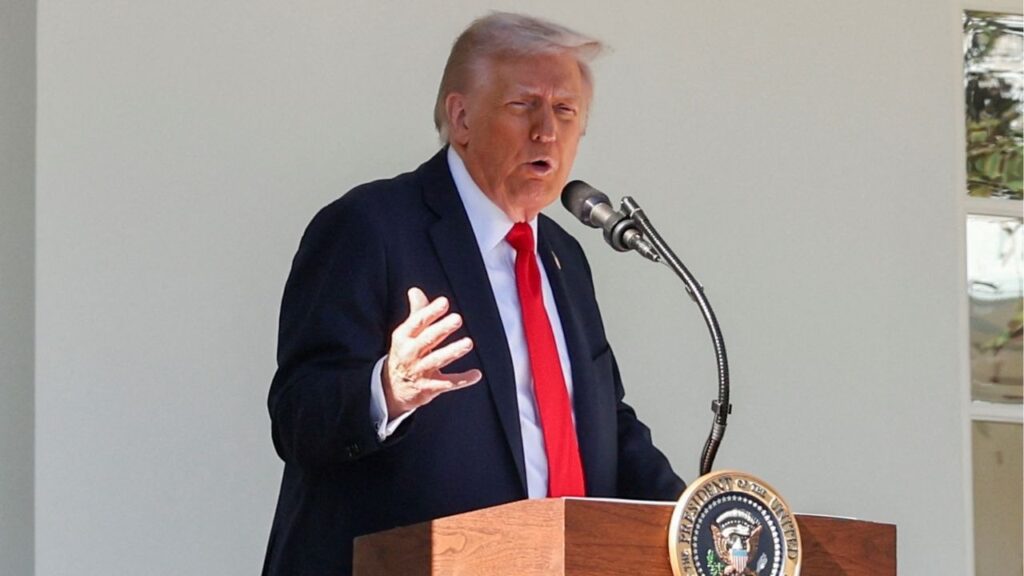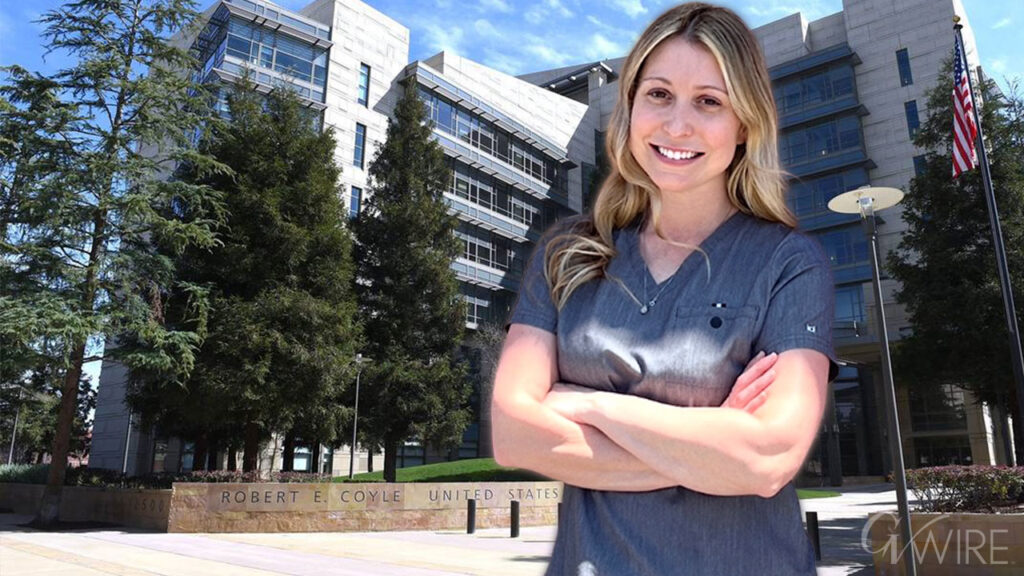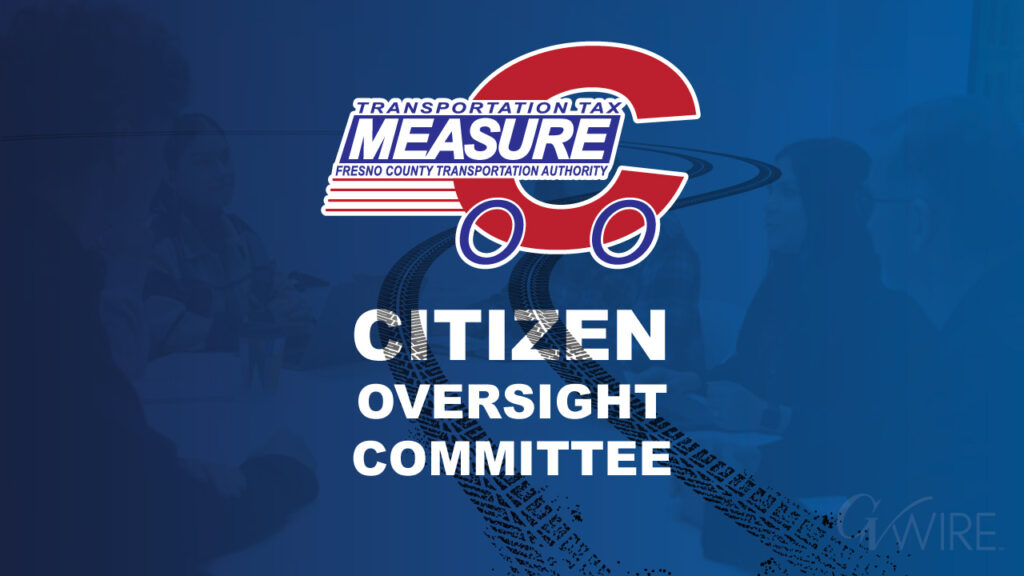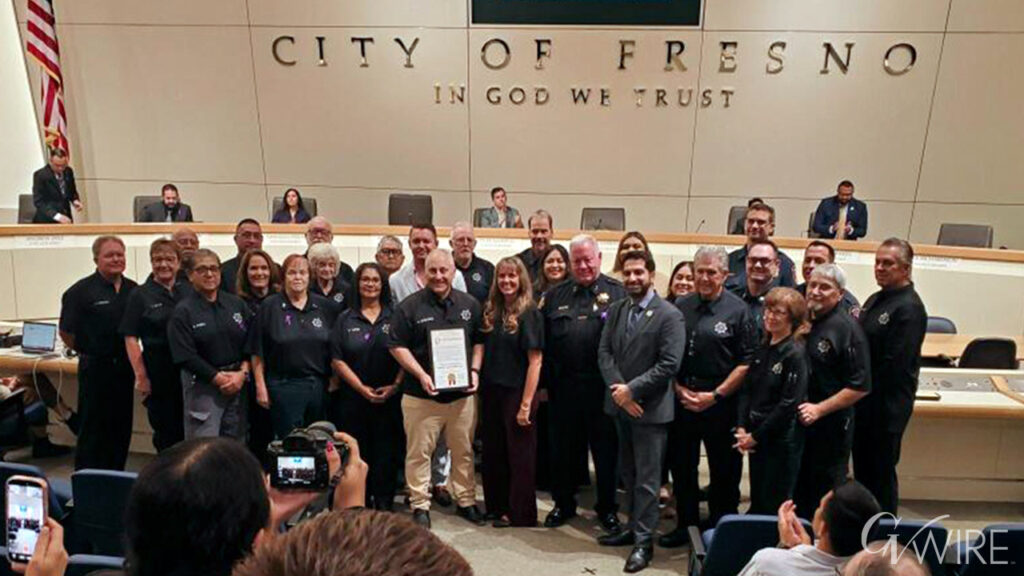Vice President Kamala Harris, the Democratic presidential nominee, at the party’s convention in Chicago, Aug. 22, 2024. Harris’ economic proposals include a plan to reduce inflation by banning price gouging on groceries. (Todd Heisler/The New York Times)

- Harris plans to ban price gouging, lower healthcare costs, and raise wages to address economic discontent and affordability issues.
- Harris proposes subsidies for housing but faces concerns that they could drive up prices in a tight market.
- Harris supports tax cuts for lower-income households while raising taxes on corporations and wealthy Americans earning over $400,000.
Share
|
Getting your Trinity Audio player ready...
|
WASHINGTON — As Vice President Kamala Harris unveiled her economic plans in recent weeks, former President Donald Trump has accused her of being a Marxist, a communist and a socialist.
When they meet Tuesday night for their only scheduled presidential debate, Harris will have the opportunity to rebut those claims and confront Trump about his record of managing the U.S. economy.
She will also lay out her vision, which has been challenging as she tries to defend “Bidenomics” and demonstrate that she has a plan to chart a new course amid widespread economic discontent among many Americans who are struggling with high prices and other affordability issues.
In a compressed presidential campaign, Harris indicated that she would continue many of President Joe Biden’s policies, which aim to raise taxes on companies and punish them for price gouging, while also trying to strike a more business-friendly tone. In some cases, such as her embrace of ending taxation of tips, the vice president has even shown a willingness to adopt the policies put forward by Trump.
How Harris would ultimately govern if elected will depend largely on the makeup of Congress, but her initial suite of proposals — from taxes to trade to child care — suggests that she would take the economy in a vastly different direction than her Republican opponent.
Related Story: It’s a High-Stakes Debate Night for Harris and Trump
Cost of Living
Perhaps Harris’ biggest political vulnerability is the run-up in prices that occurred during the Biden administration. Trump has repeatedly blamed the vice president for causing inflation to surge after the coronavirus pandemic, a phenomenon that stemmed from a mix of factors such as supply chain issues, Russia’s invasion of Ukraine and repeated bursts of fiscal stimulus to keep families and businesses afloat. The higher cost of goods initially hurt Biden when he was running against Trump, and Harris is now facing many of the same concerns from Americans who are feeling negative about a relatively strong economy.
Harris is selling many of her plans as a way to lower prices. Her ability to do so unilaterally is limited, as it is primarily the task of the Federal Reserve to control inflation.
In her first economic policy plan of her short campaign, she said she would ban price gouging in the food and grocery industries, a proposal that her campaign said would mirror state-level laws that limit companies from drastically raising prices in emergency situations. Republicans, including Trump, immediately denounced the idea as Soviet-style price controls, while progressive Democrats cheered the proposal as a way to crack down on corporate greed.
However, the exact way in which that ban would work remains unclear, and people familiar with the proposal say it is unlikely to do anything to bring down grocery prices right now.
On her campaign website, Harris said she would also try to lower health care costs by expanding the power of the federal government to set drug prices and continuing a tax credit that offsets insurance premium costs. She has also called for raising the minimum wage and eliminating the tipped minimum wage to help with the cost of living. The tipped minimum wage, only $2.13 an hour federally, is what companies are required to directly pay employees who make much of their money in tips from customers, though businesses have to ensure that their workers’ total earnings at least match the regular minimum wage of $7.25 an hour.
Related Story: Trump and Harris Neck and Neck After Summer Upheaval, Times/Siena Poll Finds
Housing
Soaring interest rates have made housing affordability a pressing issue for voters this year. The monthly costs associated with owning a home have increased significantly, and homeowners who locked in low interest rates a few years ago have been reluctant to move and let go of those lower borrowing costs, leaving buyers fewer houses to choose from.
Harris wants to address this dynamic with a swath of subsidies. To bolster the housing supply, she would provide tax credits for those who build starter homes that are sold to first-time homebuyers. She has also proposed the creation of a $40 billion innovation fund to help state and local governments develop solutions to support the construction of affordable housing.
Under Harris’ plan, first-time buyers would also receive up to $25,000 in support for their down payments. Her campaign estimates that this would help 4 million homebuyers make purchases over four years.
But economists have warned that the subsidies that Harris has proposed could push home prices higher at a time when the Federal Reserve has been working to tame inflation. They worry that the benefit would lead to more competition for an already limited housing supply, driving up prices.
Related Story: The 23 Words Harris Needs to Say to Win
Taxes
Harris has proposed tax cuts for lower- and middle-income households to ease the strain of higher prices. She wants to expand the child tax credit, which cuts taxes for many parents with children younger than 17, as well as the earned-income tax credit, a benefit for low-income Americans.
The vice president does want to raise taxes on the wealthy and large corporations, in part to help narrow the gap between what the government spends and what it earns through taxes. She has called for raising the corporate tax rate to 28% from 21%, one of Biden’s key planks for raising roughly $5 trillion in revenue over the next 10 years.
Yet while Harris broadly signed on to Biden’s tax plans, she said last week that she would scale back one of his ideas for taxing the rich. While Biden proposed taxing capital gains for Americans making more than $1 million a year at 39.6%, Harris said she would set the rate for that group at 28%. The top tax rate on capital gains — which are profits on investments in stocks, real estate or other assets — is currently 20%, though an additional surtax can apply.
The pivot from one of Biden’s tax plans is part of a broader effort by Harris to present a more moderate, business-friendly image. She said last week that she would expand a tax break for new businesses, alongside other additional federal support to startups.
Harris is expected to attack Trump on Tuesday for cutting taxes on corporations and wealthy Americans when he was president. She has pledged not to raise taxes on any household making less than $400,000 a year, meaning she would seek to extend many tax cuts that were first approved by Trump and will expire after next year.
Related Story: It’s a High-Stakes Debate Night for Harris and Trump
Trade
Trade has emerged as an economic issue where Democrats and Republicans are broadly in agreement, but Harris has taken steps in recent weeks to differentiate herself from Trump.
The former president has called for tariffs of 10% to 20% on most imports, as well as levies of more than 60% on China. At the Democratic National Convention last month, Harris described the levies as a reckless national sales tax — or “Trump tax”— that would cost middle-class families an additional $4,000 per year.
Harris was also highly critical of the tariffs that Trump imposed on China and other countries while he was in office. However, the Biden administration largely left those in place, and Trump has used that fact to argue that his approach to trade was correct.
Harris and Trump are on the same page when it comes to protecting certain domestic industries from foreign competition or control. The vice president indicated this month that, like Trump, she does not want Nippon Steel’s proposed takeover of U.S. Steel to move forward.
–
This article originally appeared in The New York Times.
By Alan Rappeport and Andrew Duehren/Todd Heisler
c. 2024 The New York Times Company
RELATED TOPICS:
Categories




















